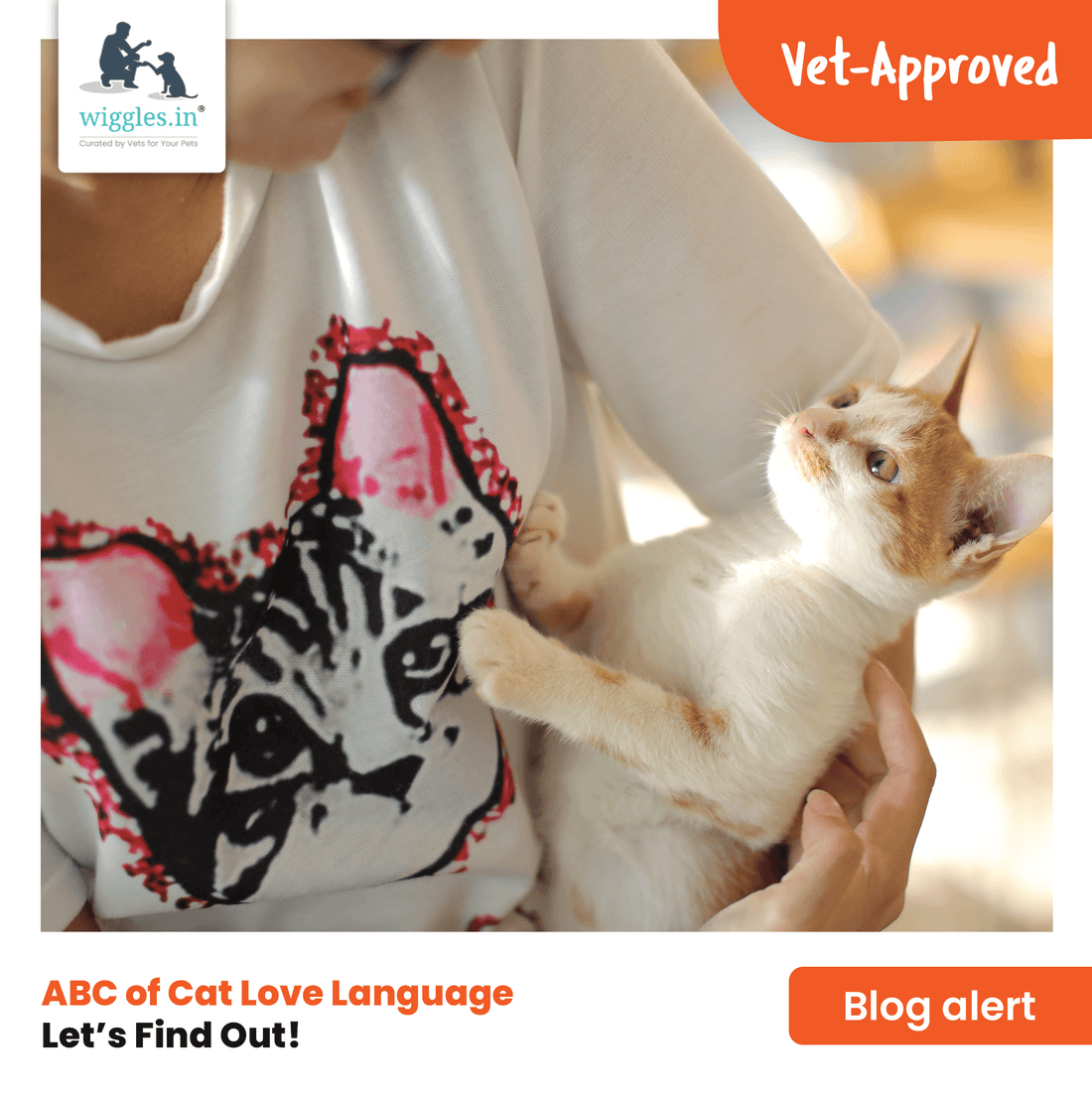If you’re a cat parent, we’re sure you’ve found yourself wondering at some point if your cat likes you or not. Cats don’t make their feelings very obvious and hence it can be difficult to know if your cat likes you.
Luckily, for you, our vets have put together a few signs that tell if your cat really likes you. Here are a few of them:
They headbutt you
Cats use ‘headbutting’ as a way of marking their territory. “Sometimes cats mark their territory by rubbing their body or scent glands on their cheek and head against an object or a person,” says Dr. Dilip Sonune, Director of Veterinary Services at Wiggles. So by headbutting you or rubbing their chin against you, your cat is claiming you as one of their own.
They groom you
According to some studies, cats view their humans as members of their family i.e. very large cats who are not very good at hunting. If your cat licks you or grooms you, take it as a positive sign of showing affection. Licking is also considered to be a very rare sign of showing love, so if your cat licks you, consider yourself very lucky.
They knead often
Cats often make biscuits by kneading when they’re feeling extremely happy and comfortable. Kneading is a behavior kittens learned when they tried to stimulate their mother’s milk flow. By displaying this behavior well into their adulthood, they show that they accept you as a part of the family.

When your cat is working hard at the biscuit factory, reward them with some treats
They give tell ‘tail’ signs
A cat’s tail can tell a lot about their mood. If your cat’s tail is upright, almost straight and swaying slightly from side to side, it could indicate that they are friendly and they like you. When your cat’s tail is twirled around your leg, it could also be a sign of friendship or affection.
They bring you gifts
If your cat presents you with a gift, even if that is something they hunted, consider it as a token of their love. Sometimes, when a cat brings you a dead bird or any other prey they hunted they could be acting as a teacher - just as they would teach their kids to hunt. Sometimes cats think you’re a lousy hunter and share their food with you.
It is important to not yell or scold your cat for bringing a dead bird or prey to you. They bring their prey to you to display their affection. Yelling at them can make them feel confused and they may even start getting scared of you. When they do bring something like this to you, simply discard it when your cat is not looking.
They follow you everywhere
If your cat follows on your bathroom trips, into the kitchen or climbs into the beds, sits beside you while working and is always generally just around you, you can take this as a sign of love. Your cat enjoys your company if they follow you around everywhere.
They blink at you slowly
If you’re a cat parent, you’re familiar with the trance-like gaze your cat sometimes gives. This gaze can sometimes be an indication of affection. Cats aren’t easily trusting by nature, so if they close their eyes in front of you, it could mean they trust you. Slow blinking is also sometimes called a ‘kitty kiss.’

If a cat blinks at you slowly, it can indicate affection
They show you their behind
Cats identify each other by scent and they will sometimes sniff each other’s behind to get to know each other. Putting their tail and butt in your face may seem like a rude gesture but your cat is showing that they trust and love you.
Why don’t you give back some of this love to your cat by getting them vet-approved products made with love and all heart?
Team Wiggles has started an initiative called #BondedByBlood through which we are trying to create an online repository of ready pet blood donors. Register your pet today and save a life tomorrow.
*Disclaimer: This blog is vet-approved and includes original content which is compiled after thorough research and authenticity by our in-house team of vets and content experts. It is always advisable to consult a veterinarian before you try any products, pet food/treats or any kind of treatment/medicines on your pets, as each pet is unique and will respond differently.



















